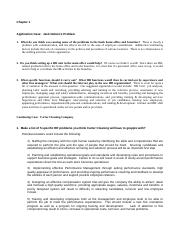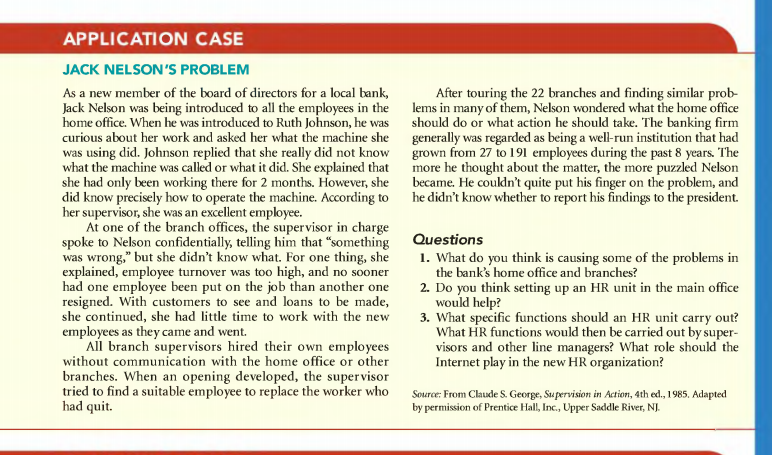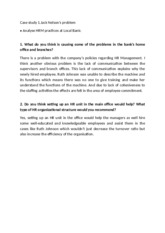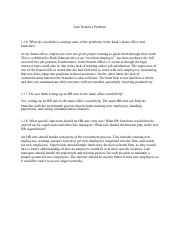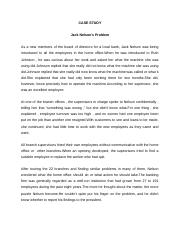Human resources (HR) is a critical function in any organization. It is responsible for managing the people who work for the company and ensuring that they are effectively utilized to achieve the organization's goals and objectives. HR has a wide range of responsibilities, including recruiting and hiring, training and development, performance management, employee relations, and compliance with labor laws and regulations. In this essay, we will examine some of the specific functions that an HR unit should carry out in order to effectively support and manage the organization's workforce.
Recruiting and hiring: One of the primary functions of HR is to identify and attract qualified candidates for open positions within the organization. This may involve posting job openings, reviewing resumes, conducting interviews, and making hiring decisions. HR professionals should have a strong understanding of the job requirements and the skills and qualifications necessary to succeed in the role. They should also be able to assess candidates' fit with the company culture and values.
Training and development: Another important function of HR is to provide ongoing training and development opportunities for employees. This may include providing new hires with orientation and onboarding, offering ongoing skills training to improve performance, and helping employees to advance their careers within the organization. HR should be proactive in identifying the training and development needs of the workforce and developing programs to meet those needs.
Performance management: HR is also responsible for managing and evaluating employee performance. This may involve setting performance goals and standards, conducting performance reviews, and providing feedback and coaching to help employees improve. HR should work closely with managers and employees to ensure that performance expectations are clear and that employees have the support and resources they need to succeed.
Employee relations: HR plays a key role in maintaining good relations between employees and management. This may involve handling employee complaints, mediating conflicts, and promoting a positive and inclusive work environment. HR professionals should be skilled at managing and resolving conflicts in a fair and objective manner.
Compliance: Finally, HR is responsible for ensuring that the organization is in compliance with all relevant labor laws and regulations. This may include staying up to date on changes in laws and regulations and implementing policies and procedures to ensure compliance. HR should also be responsible for managing employee benefits and managing payroll and employee records.
In conclusion, HR plays a critical role in managing and supporting the workforce of an organization. Its functions include recruiting and hiring, training and development, performance management, employee relations, and compliance. HR professionals should be skilled at carrying out these functions in a way that helps the organization to achieve its goals and objectives while also promoting a positive and inclusive work environment.
Human resources (HR) is a vital function in any organization, as it is responsible for managing and supporting the people who work for the company. HR departments are responsible for a wide range of activities, including recruiting and hiring new employees, providing training and development opportunities, managing employee benefits and compensation, and addressing issues related to employee relations and performance. In this essay, we will discuss some of the specific functions that an HR unit should carry out in order to support the needs of the organization and its employees.
One key function of HR is recruiting and hiring new employees. This involves identifying the staffing needs of the organization and developing strategies to attract top talent. This may include job postings, networking events, or partnerships with recruiting firms. The HR department is also responsible for reviewing resumes and conducting interviews to select the best candidates for the organization. Once a candidate is selected, HR is responsible for onboarding them and helping them get acclimated to their new role and the company culture.
Another important function of HR is providing training and development opportunities for employees. This can include everything from basic job training to leadership development programs. By investing in the professional development of its employees, an organization can improve morale, increase retention rates, and drive performance. HR is responsible for identifying the training needs of the organization and developing and implementing appropriate training programs.
HR is also responsible for managing employee benefits and compensation. This includes designing and administering employee benefit plans, such as health insurance, retirement plans, and paid time off. HR is also responsible for managing the company's payroll and ensuring that employees are paid accurately and on time. In addition, HR is responsible for conducting salary and benefits surveys to ensure that the organization is offering competitive packages to attract and retain top talent.
Another important function of HR is addressing employee relations and performance issues. This can include anything from managing conflicts between employees to addressing concerns about discrimination or harassment. HR is responsible for maintaining a positive work environment and ensuring that all employees are treated fairly and with respect. This may involve conducting investigations, mediating disputes, or working with managers and employees to develop solutions to problems.
In conclusion, HR plays a vital role in the success of any organization by managing and supporting the people who work for the company. Specific functions of HR include recruiting and hiring new employees, providing training and development opportunities, managing employee benefits and compensation, and addressing employee relations and performance issues. By carrying out these functions effectively, HR can help ensure that the organization has a talented and engaged workforce that is able to contribute to the company's success.

